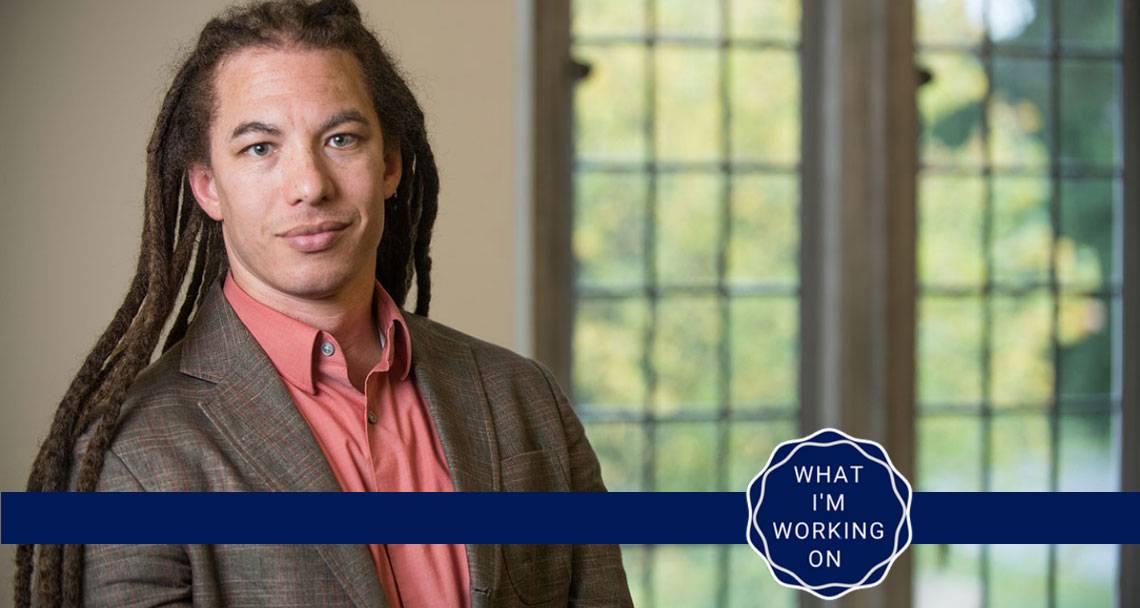What I'm Working On: Health Inequalities Among Older Adults
Sociologist Tyson Brown studies social mechanisms that lead to different health outcomes

Assistant professor of sociology Tyson H. Brown focuses on how social factors affect population health. Brown is also the director of the Center on Health & Society. His new work investigates why older adults get sick at different rates.
He discussed his work recently with Duke Today. Here are excerpts:
Hello professor. What are you working on?
My research focuses on how social inequality gets under the skin, with particular attention to racial disparities in health. We know that African-Americans live sicker and shorter lives compared to whites. I’m interested in figuring out why that’s the case. Specifically, my work aims to identify the mechanisms underlying racial inequalities in health among older adults.
Why do you care about this issue?
Health disparities along racial lines result in unnecessary suffering, premature mortality, and excess economic costs of over $300 billion annually. In order to improve minority health and promote population health equity, researchers and policy makers need a better understanding of how social factors shape health.
Why focus on older adults?
Older adults in general, and older racial minorities in particular, represent a growing segment of the population. Also, studying population health in later life provides a unique opportunity for understanding the cumulative impact of racial inequalities across individuals’ lives. We find that disparities in health are particularly pronounced in middle and later life as a result of the accumulation of economic and social advantages for some groups, and disadvantages for others.
Like what?
Many older African Americans have endured decades of overt and subtle forms of discrimination in a variety of settings such as educational, criminal justice, and health care systems, as well as in job, credit, and housing markets. As a result, African Americans have lower levels of education, income, and wealth than whites. African Americans also experience elevated exposure to chronic stressors and financial strains, and they’re more likely to live in unhealthy neighborhoods characterized by high levels of crime and limited options for healthy foods, recreational resources, and quality housing.
This all relates back to health and health inequalities?
Yes, population health is a mirror that reflects societal arrangements. My research illustrates how social conditions affect biological processes and ultimately lead to racial disparities in health. For example, a study I’m currently working on examines the extent to which social factors contribute to racial disparities in a range of health outcomes. Results from the study show that racial inequalities in an array of social factors—e.g., education, income, wealth, chronic and neighborhood stressors, financial strains, and perceived discrimination—collectively account for approximately 75% of the health gap between African Americans and Whites.
And how does this advance what is already known?
By formally testing the role of socioeconomic and psychosocial factors, my work points to underlying mechanisms of inequality such as unequal exposure to economic hardships and stressors. This information improves our understanding of how health inequalities are produced and maintained, as well as how they can potentially be addressed.
So ultimately, your findings could help shape policy debate?
Absolutely—my research shows that socioeconomic inequalities and stress processes contribute to racial disparities in health, and suggests that policies and interventions targeting both economic inequality and heightened exposure to stressors faced by African Americans would go a long way toward ameliorating health disparities.
What’s a big idea for attacking this?
It’s becoming increasingly clear that social and economic policies are health policies. Moving the needle on health disparities could take the form of any number of bold cost-effective, race-neutral policies. A few that come to mind are child trust account (or baby bonds), a federal jobs guarantee, criminal justice reform and enforcement of the fair housing act. These policies would reverse the rising tides of inequality, disproportionately benefiting communities of color while also improving the health of the US population as a whole.
Those really are bold actions. It sounds like you’re saying this wouldn’t work in incremental pieces.
We have a good deal of data showing that incremental approaches, which have largely focused on biomedical and behavioral interventions, have not appreciably reduced the racial health gap. Achieving population health equity will require fundamental changes that improve social conditions and opportunities for good health among the most disadvantaged groups.
That requires a lot of political will.
Indeed, but I’m an optimist. Just as social and economic policies have led to the health inequalities we see today, they can also play an important role in achieving health equity.